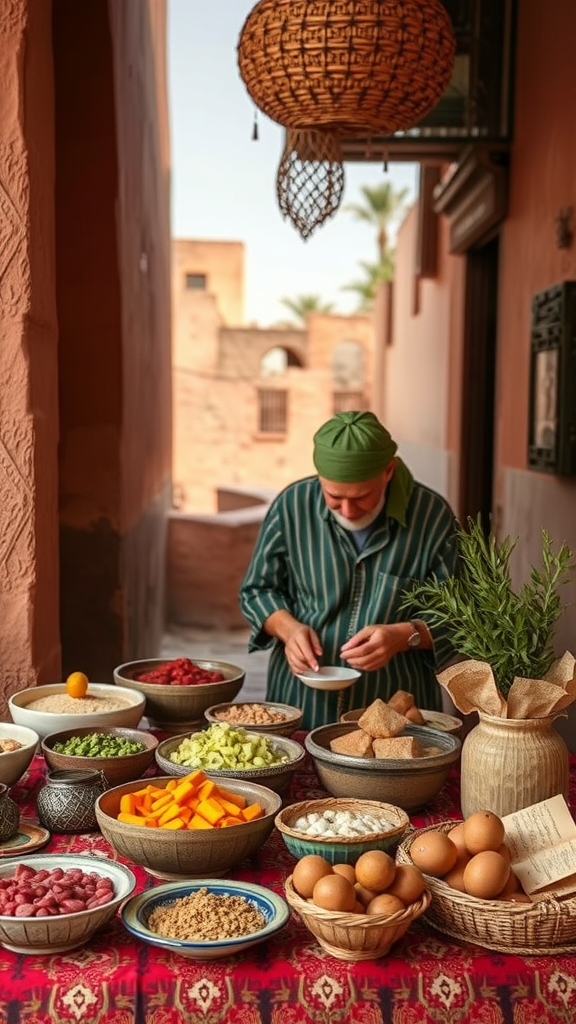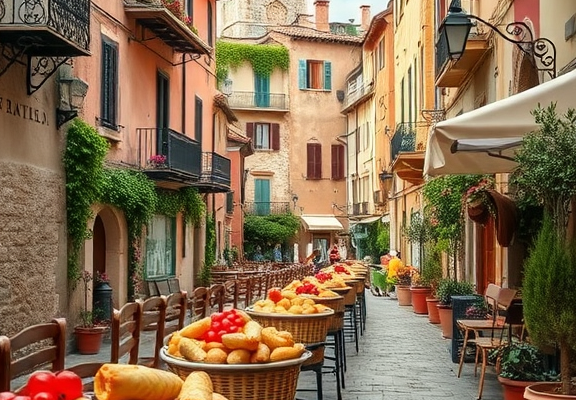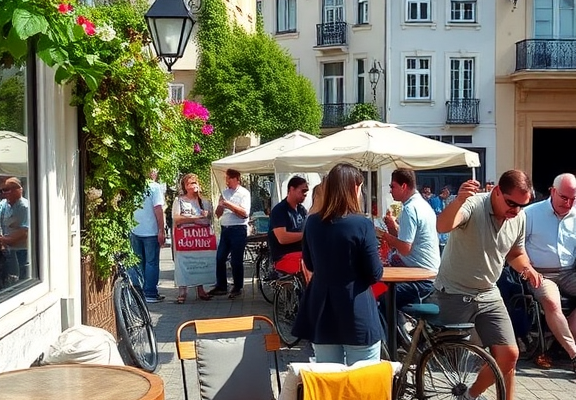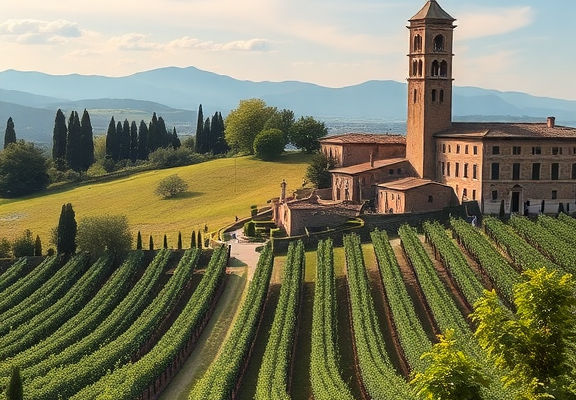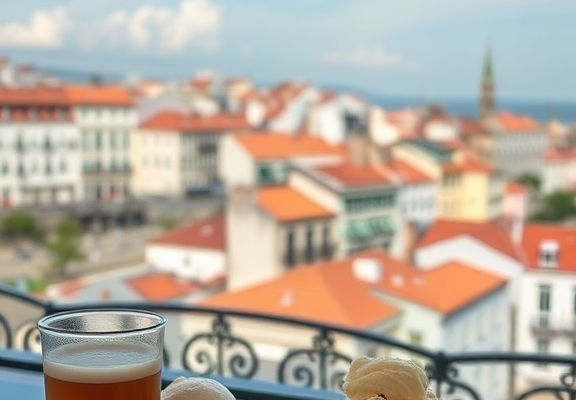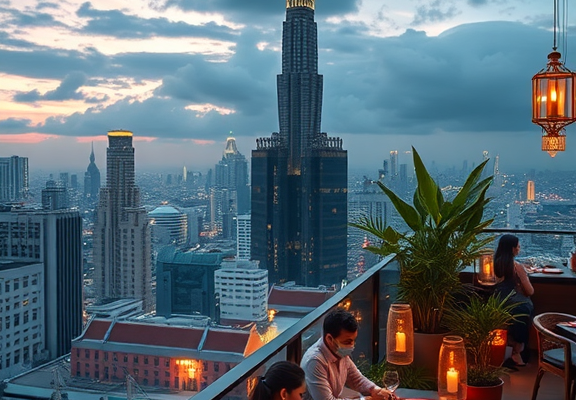Immersive Culinary Journeys: Exploring Cultural Food Experiences in Morocco
When you think of Morocco, vivid images of bustling markets, colorful spices, and traditional dishes spring to mind. This North African country offers an immersive culinary journey that captures its rich history and diverse culture. From street food stalls to home-cooked meals, exploring culinary experiences in Morocco is unlike any other.
Thank you for reading this post, don't forget to subscribe!Your adventure begins in the markets, known as souks, where vendors proudly display local ingredients. Here, you can engage your senses, inhaling aromatic spices like saffron, cumin, and paprika. Morocco’s cuisine is influenced by Berber, Arabic, and Mediterranean flavors, making it a vibrant melting pot of tastes.
Discover Traditional Moroccan Dishes
No culinary journey in Morocco is complete without trying traditional dishes that reflect its cultural heritage. Here are some iconic foods you should not miss:
- Couscous: This fluffy grain, often served with vegetables and meat, is a staple of Moroccan cuisine and symbolizes family gatherings.
- Tajine: A slow-cooked stew named after the earthenware pot it’s cooked in. With flavors that range from savory to sweet, each tajine tells a story.
- Bastilla: A unique pastry that combines sweet and savory flavors, usually filled with pigeon or chicken and dusted with powdered sugar.
- Harira: Often enjoyed during Ramadan, this hearty soup blends tomatoes, lentils, and spices, making it a comforting dish.
As you explore these traditional dishes, consider participating in a cooking class. These classes allow you to learn from local chefs who share tips and secrets about Moroccan cooking methods. You’ll find yourself chopping fresh vegetables, grinding spices, and simmering meals that you can later impress your friends with back home.
Street Food: A Delicious Adventure
To truly experience Moroccan culture, you must sample the street food. A walk through any city will reveal tantalizing treats that are both affordable and mouthwatering. Some street food highlights include:
- Brochettes: Skewers of grilled meat, usually lamb or chicken, flavored with spices and served with fresh bread.
- Spicy Snails: Cooked in a flavorful broth, these are a bold option for adventurous eaters.
- Sfenj: Moroccan donuts that are light, airy, and often enjoyed with a sprinkle of sugar.
Street food not only fills your stomach but also gives you a chance to connect with locals. As you enjoy your meal, don’t hesitate to strike up a conversation. You might learn about their favorite childhood foods or cooking traditions passed down through generations.
Cultural Experiences and Culinary Tours
To elevate your culinary adventure, consider joining a food tour. Many cities host guided tours that take you through local neighborhoods, where you can taste various delicacies. This experience allows you to:
- Visit family-run eateries that embody the essence of Moroccan hospitality.
- Explore the history behind each dish and its cultural significance.
- Expand your palate by trying lesser-known but equally delicious foods.
One highly recommended activity is dining in a traditional Moroccan home. Often, local families open their doors to visitors, providing a genuine experience. You may find yourself sharing a meal while listening to stories about Moroccan traditions, making your culinary journey even more enriching.
Delightful Sweet Treats
As you savor the main courses, don’t skip dessert. Moroccan sweets often feature almonds, honey, and orange blossom. Treat yourself to:
- Baklava: A classic pastry made with layers of filo, filled with nuts and soaked in syrup.
- Chebakia: A deep-fried honey sesame cookie, perfect with a cup of mint tea.
Mint tea itself is a cultural experience, representing hospitality and friendship in Moroccan society. Be prepared to sip tea poured from a height, a practice that showcases the skill of your host.
Embarking on a culinary journey in Morocco is an eye-opening experience that goes beyond food. It’s an exploration of culture, tradition, and connection. As you navigate the flavors and aromas, you will not only taste Morocco but feel its vibrant spirit emanating from every dish. So pack your bags, and get ready to explore the diverse, colorful culinary landscape that awaits you in this enchanting North African country.
The Role of Traditional Markets in Shaping Moroccan Cuisine and Culinary Culture
In Morocco, traditional markets, known as souks, play a vital role in defining the nation’s rich culinary landscape. The bustling energy of these markets not only offers a plethora of fresh ingredients but also connects local communities and encourages the sharing of culinary traditions. As you wander through the maze of stalls, you will witness firsthand how these vibrant markets shape the very essence of Moroccan cuisine.
One of the first things you will notice in the souks is the vibrant array of colors. Fresh fruits and vegetables are stacked high, with seasonal produce proudly displayed. Whether it’s the fragrant oranges or the deep green zucchinis, the emphasis is always on freshness. Local farmers bring their harvest directly to the market, ensuring that what you eat is not only flavorful but also supports the community’s economy.
Even more captivating is the influence of spices in Moroccan cuisine, which you can experience at the heart of these markets. You’ll find stalls filled with spices like cumin, saffron, and the unique ras el hanout blend, a mixture of various spices that exemplifies the Moroccan approach to flavor. As you explore the spice vendors, you may be tempted to breathe in the intoxicating aromas, allowing your senses to dive deep into the culinary heritage of the region.
Local artisans also play a significant role in forming the culinary culture. In the souks, you can observe craftsmen preparing traditional cookware, such as tagines and couscoussiers. These items are essential for local cooking and represent not just tools but an important link to history and tradition. Using these authentic pots enhances the flavors of dishes, making the connection to the region’s rich culinary past even more tangible.
Engagement in the local culture becomes an unforgettable experience when you participate in cooking demonstrations often held within the markets. From learning about how to properly season tagines to understanding the importance of slow-cooked dishes, these experiences provide direct insight into culinary practices that have been passed down through generations. You’ll not only watch but may also have the opportunity to taste the dishes prepared right before your eyes.
Additionally, the community aspect of Moroccan markets encourages locals and tourists alike to come together over food. Often, street vendors grill skewers of meat and serve them with fresh bread or traditional salads. These communal meals foster relationships and provide a sense of belonging, reinforcing the notion that food is at the heart of every gathering. Eating in these locales allows you to engage with fellow diners, sharing stories and experiences that enrich your understanding of the culture.
The diversity in the foods you can sample at a Moroccan market also mirrors the country’s historical influences. With Berber, Arab, and French culinary practices interwoven throughout the cuisine, each dish tells a story. Here are some staples you might encounter:
- Tagine: A slow-cooked stew named after the dish it is cooked in, filled with meats and vegetables.
- Couscous: Often served on Fridays, this dish consists of tiny steamed wheat granules topped with meat and vegetables.
- Harira: A traditional soup enjoyed during Ramadan, made with tomatoes, lentils, and spices.
- Mint Tea: Known as the national drink, it’s a symbol of hospitality and essential to Muslim culture.
Exploring Moroccan cuisine through its traditional markets not only tantalizes your taste buds but also educates you about the larger cultural narrative. You gain a keen appreciation for the intricacies of Moroccan cooking, the importance of seasonal ingredients, and the pride locals take in their culinary heritage.
As you leave the market, don’t forget to savor every moment and memory. These souks are more than just shopping areas; they are the heartbeat of Moroccan culinary culture, where flavors, aromas, and stories linger in the air. This vibrant essence of Moroccan life is what makes your journey through the markets a truly enriching experience.
Conclusion
Experiencing the cultural food landscape of Morocco offers a rich tapestry of flavors and traditions that resonate with history and community. From the bustling souks to the serene riads, every corner reveals a new culinary journey waiting to be explored. The immersive culinary experiences in Morocco go beyond just the act of eating; they invite you to engage with local customs, spices, and techniques that have been passed down through generations.
Visiting traditional markets is a vital part of understanding Moroccan cuisine. These vibrant spaces not only provide fresh ingredients but also serve as social hubs where stories and recipes are exchanged. As you wander through the colorful stalls, the scents of spices like cumin, saffron, and paprika intermingle, enriching your understanding of the region’s culinary heritage. The interaction with local vendors offers a unique insight into how Moroccan dishes are crafted, reflecting the culture’s deep-rooted connection to its land and people.
This journey through Morocco’s culinary world is one filled with warmth, passion, and a sense of community. Each meal, whether enjoyed in a bustling market or a family kitchen, tells a story of the country’s cultural identity. By embracing these experiences, you not only satisfy your palate but also create lasting memories and connections to the vibrant culture of Morocco. Engaging with Moroccan food is a heartfelt invitation to explore, learn, and savor all that this beautiful country has to offer—making your culinary adventure unforgettable.

